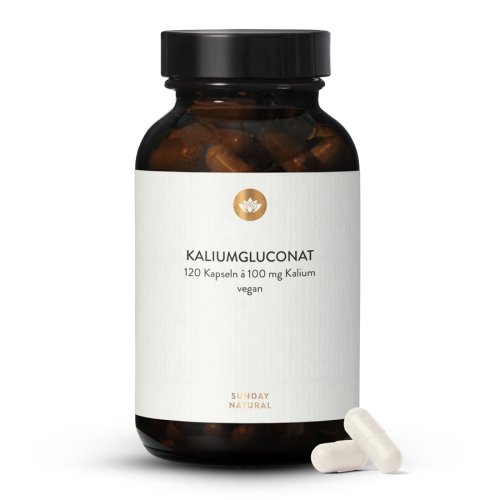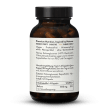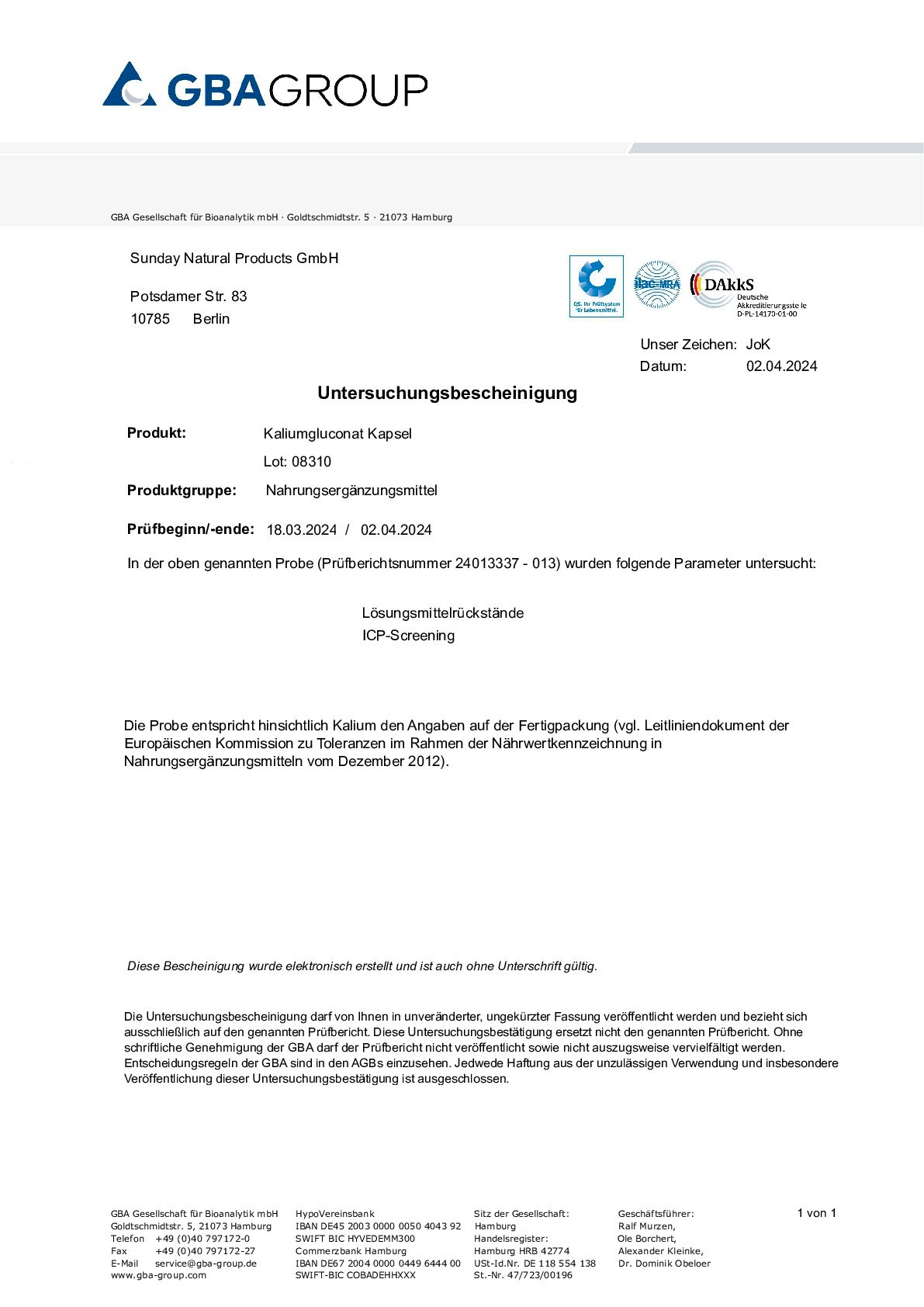Potassium is the third most common mineral in the body and is one of the essential (vital) electrolytes. Around 98% of all potassium in the human body is found intracellularly (i.e., within the cell), while its important counterpart, sodium, is mainly concentrated extracellularly. A balanced ratio of these two minerals is an important basis for a large number of bodily reactions and (enzymatic) metabolic processes. However, our modern, high-salt diet easily shifts the balance towards a sodium surplus. Excess sodium also favours the excretion of potassium via the kidneys. Increased sport and everyday stress also increase the overall need for minerals and as potassium cannot be stored in the body, we are dependent on a sufficient daily supply of the mineral in order to maintain the balance of important body systems.
Potassium gluconate is the potassium salt of gluconic acid, a natural fruit acid. Gluconates are particularly easily absorbed in the intestine.
According to the European Food Safety Authority (EFSA):
Potassium contributes to:
- normal function of the nervous system,
- normal muscle function,
- the maintenance of normal blood pressure.

























